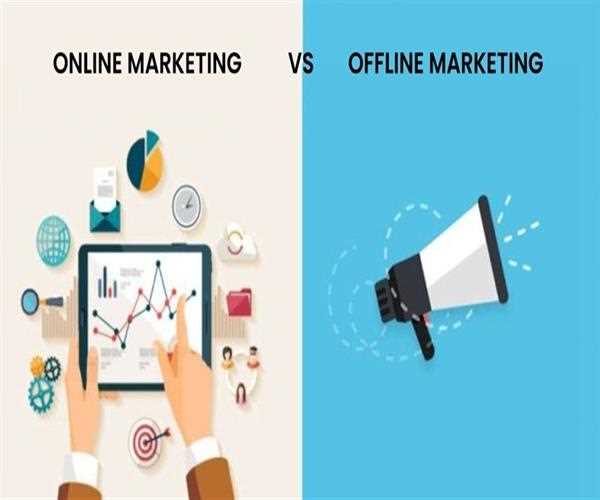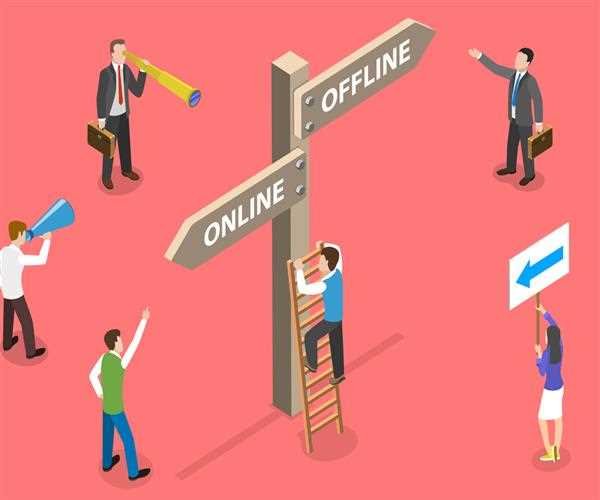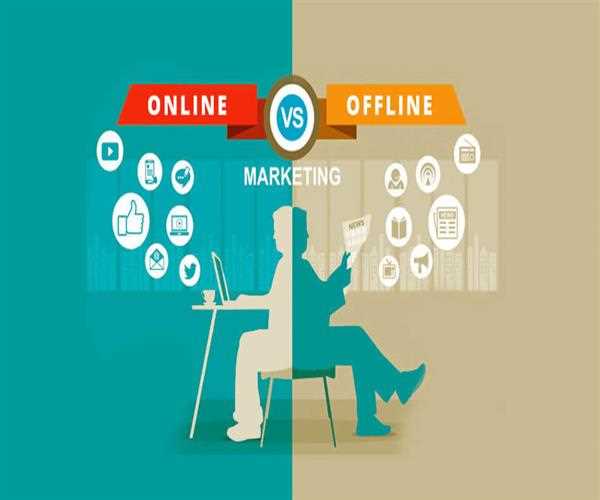
12-Oct-2024 , Updated on 10/13/2024 9:10:17 AM
Offline Marketing Vs Online Marketing Strategy, Which One Is Better?
The international has long passed digital, so enterprise owners and managers are frequently in the dilemma of whether to use the traditional marketing technique or the new online advertising technique. Both the first and 2d processes also have their strengths and weaknesses, consisting of relevance to the target market, the desires and targets of the company, and the character of the hobby or provider to be marketed. However, which of the strategies plays the role better? Now, it will be interesting to discuss the difference between both approaches to understanding which one is most suitable for contemporary companies.
1. Understanding offline marketing
Offline marketing therefore encompasses a full spectrum of marketing that is physically and not electronically done on the Internet. This strategy involves the use of media such as print media (newspapers and magazines), electronic media (television and radio), direct mailing, and outside media (billboards and posters). Some businesses continue to use these methods of marketing because they get them to those not necessarily always online or more diverse populations.
Traditional media is directed to audiences that prefer that kind of marketing and are not frequently using the internet for information or entertainment. This can include the elderly or any group that may have little or no access to the internet in their physical location.

Advantages of Offline Marketing:
- Tangible and lasting presence: That can remain as tangible information, such as getting your brochures, business cards, or even print media ads.
- Wider reach for specific audiences: It is possible to advertise to local customers through the radio or a billboard.
- Face-to-face interaction: This helps to foster personal relationships through interactions and actual engagements during events, exhibitions, or own stores.
Limitations of Offline Marketing:
- Limited tracking: Evaluating the ROI of offline marketing interventions is not easy because it is difficult to monitor consumer reactions.
- Cost-intensive: television season, TV ads, or using ads in popular newspapers might be costly to new businesses or businesses with a limited budget.
- Less personalized: Compared to offline media, it is difficult to target unique promotion messages to each customer, and therefore customers may rarely be interested.
2. The rise of Internet marketing
Online advertising, additionally referred to as on-line marketing advertising and marketing or digital advertising, uses the arena extensive web to promote services and products. They are social media ad advertising and marketing, electronic mail advertising, SEO (search engine advertising and marketing and business advertising), pay-consistent with-click on (PPC) advertising and commercial advert advertising, and content advert marketing and offerings.
As people spend extra time the use of their cell telephones and different connected gadgets, they are shifting towards online searching for savvy and efficient purchasing.
It enables marketers to reach the intended segments through messaging, monitoring, and making changes in real time because data is used when developing the strategies.
Advantages of Online Marketing:
- Data-driven insights: The use of online marketing exposes businesses to user behavior, engagement, and conversion data that is beneficial in evaluating the campaigns.
- Cost-effective: Conventional marketing normally costs more than its new online form because online marketing services are comparatively cheaper than many offline marketing services.
- Global reach: Geographical barriers are removed from the internet to create a physical link between customers of businesses.
- Personalization: Companies can get highly specific when it comes to promotion and advertising, as they depend on the client’s history of activity in the Internet space.
Limitations of Online Marketing:
- Saturation and competition: While internet marketing is common among businesses, the challenge is how well they will differentiate themselves.
- Dependency on Internet access: Internet marketing cannot get to clients in areas that have low or no Internet connection at all.
- Privacy concerns: The recent changes to consumer protection laws and legal concerns on data privacy limit the ways that firms may gather consumer information for marketing.

3. Comparing Offline and Online Marketing
a. Reach and audience targeting
In most cases, the offline marketing strategies adopted are likely to target a specific region depending on the type of products being marketed. Sometimes, when a business wants to target a specific demographic area, radio advertisements, billboards, or even fairs might just do the trick. However, online marketing has the advantage of a large marketing area so that businesses can target their audiences within one region or another country with commendable ease.
This is because online marketing strategies allow businesses to utilize data analytics to construct very ‘good’ campaigns. For instance, it is easy to target PPC ads by demographic characteristics, geographical location, or browsing history, which cannot be easily accomplished otherwise offline.
b. Cost and ROI Measurement
More often, offline marketing is costly, especially when a company has to pay a high price for airing times on TV, radio, or putting an ad in a newspaper. However, precise measurement of these campaigns is a bit challenging, and there are very scantly few tracking tools available. Furthermore, the flexibility of online marketing in terms of the money being invested is higher compared to print media. Notifications of the spending that small businesses make in general digital marketing platforms such as Google AdWords or social media ads as small businesses can begin with less spending and ease up their expenditures depending on the data indicated in real-time performance.
Internet-based tools also allow much more specific analysis of the customers’ activity and, therefore, much higher chances to define the specific ROI for every advertising campaign. Campaign metrics like click-through rates, conversion rates, and engagement rates are measurable, allowing businesses to make more informed decisions.
c. Brand Awareness and Engagement
Although concepts like the running of TV commercials or event part sponsorship may build up a considerable image for the firm, online marketing is a more direct, two-way communication method. For instance, a firm can directly communicate with consumers through a social media app such as Instagram or Facebook to answer their questions, complaints, or remarks.
Additionally, content material advertising and marketing within the form of blogs, videos, or infographics can help build logo authority online, drawing in clients through natural search traffic. The two-way communication possible in virtual channels often results in stronger purchaser relationships and better engagement rates.
4. Which Strategy Is Better?
If you are wondering whether or not offline advertising is better than commercial or online advertising, it is important to note that one long answer can’t be given to everyone The best advertising strategy depends on the character of the employer, people targeted, and standard advertising marketing appeal.
For organizations with a nearby, older, or much less digitally inclined audience, offline advertising, and marketing techniques may also yield higher effects. For instance, a nearby restaurant may see higher effects from unsolicited mail coupons or billboard marketing.
However, for companies aiming to scale hastily or attain a tech-savvy, worldwide target market, online advertising gives them the flexibility, precision, and scalability they need to gain their desires. Many agencies discover fulfillment by integrating both strategies: the use of offline strategies to build local brand recognition and online techniques to maintain engagement and force conversions.

Conclusion
Ultimately, the talk about offline marketing vs. online advertising and marketing comes right down to the business’s particular wishes and goals. While offline advertising and marketing has a physical presence and appeals to precise demographics, online advertising and marketing gives a way more versatility, reach, and statistical insights. The most successful agencies frequently integrate the strengths of each strategy to maximize their advertising efforts and attain a complete marketing method.

Student
Being a professional college student, I am Shivani Singh, student of JUET to improve my competencies . A strong interest of me is content writing , for which I participate in classes as well as other activities outside the classroom. I have been able to engage in several tasks, essays, assignments and cases that have helped me in honing my analytical and reasoning skills. From clubs, organizations or teams, I have improved my ability to work in teams, exhibit leadership.
Join Our Newsletter
Subscribe to our newsletter to receive emails about new views posts, releases and updates.
Copyright 2010 - 2026 MindStick Software Pvt. Ltd. All Rights Reserved Privacy Policy | Terms & Conditions | Cookie Policy